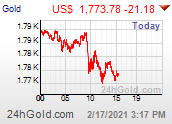Anglos V. Latinos
Editorial by Tom Anthony
 I grew up as a Catholic here in the Denver Area and my childhood world was divided in terms of Catholic v. Public. I didn't really understand the differences, which were many, between me and the "public school" kids who were my teammates in Little League. However, I did know they existed. And, I knew I was somehow better than they, although I was on second string most of the time and warming the bench a lot.
I grew up as a Catholic here in the Denver Area and my childhood world was divided in terms of Catholic v. Public. I didn't really understand the differences, which were many, between me and the "public school" kids who were my teammates in Little League. However, I did know they existed. And, I knew I was somehow better than they, although I was on second string most of the time and warming the bench a lot.
As to racial differences, I had the perhaps enviable experience of growing up in a whitebread suburb of Denver in which Italians formed the largest racial minority compared to what are known as "Anglos" today. I will have to say "Anglos" comprise Germans, Slavs, Scandinavians, Russians, Poles, Brits, Irish and others, maybe even Italians, and therefore is an omnibus word that's about as accurate as calling a trout a bass. However, distinguishing genetic races in a world of mixed marriages is a bit challenging regardless. For instance, while our current President is a mulatto, he is commonly called the first "black" president, which goes to show you that on this subject you will find little but confusion.
My stunted racial sensitivity had me believing that my neighbors of Mexican or Spanish descent were Hispanic. However, I've been corrected on this, which leads me to my subject of "Anglos v. Latinos." Who are the Anglos, and who are the Latinos, and is there really a conflict here ("v.") As to the Anglos, see above. Latinos, as I've been instructed by the knowledgeable politically correct of my acquaintenceship, comprise those peoples of "Latin America." That includes anyone from Mexico to Argentina and back, whether speaking Spanish or Portuguese, or Oto, and of that heritage. Consequently, people of Spanish descent who settled in property now owned by the United States who became American citizens under the Treaty of Guadalupe Hidalgo would properly be of "Latin American" heritage and thence not Hispanic at all, since that land was originally part of Mexico. Unless, of course, as a Mondragon or other Spanish descendent living in the French-owned Louisiana Territory your forebears never did live in Mexico; in which case you can be a true Hispanic (whew!)
But whence the derivision of Latin America itself? That came from the Papal Bull of 1493 and the Treaty of Tordesillas, precipitated by Columbus's successful voyage to the New World financed by Queen Isabella and King Ferdinand of Spain. Specifically to reward the loyalty of the Catholic nations of Spain and Portugal with a writ of expansion from God on High it states: "'Among other works well pleasing to the Divine Majesty and cherished of our heart, this assuredly ranks highest, that in our times especially the Catholic faith and the Christian religion be exalted and be everywhere increased and spread, that the health of souls be cared for and that barbarous nations be overthrown and brought to the faith itself. ...we (the Papacy) command you (Spain) ... to instruct the aforesaid inhabitants and residents and dwellers therein in the Catholic faith, and train them in good morals.' This papal command marked the beginning of colonization and Catholic Missions in the New World. An important if initially unintended effect of the combination of this papal bull and the Treaty of Tordesillas was that nearly all the Pacific Ocean and the west coast of North America were given to Spain. Consistent with these ancient claims, Spain made claims to British Columbia and Alaska as late as 1819 because they bordered the Pacific Ocean. The Adams-Onís Treaty resolved this by settling the border between Spain and the United States, limiting Spain's northward expansion to the 42nd parallel, south of Oregon." (quoted from Wikipedia.)
Thus, the Pope bequeathed all of South America and much of North America to Spain and Portugal, leaving out the Protestant upstarts from England, Germany, and Sweden. Which is why Portuguese is spoken in Brazil and Spanish in Bolivia.
Fast forwarding to the present day message of Latino v. Anglo then: are the Catholics and Protestants (Publics) still at it? I'll have to say I discarded my Catholicism to some extent decades ago, without having embraced being a "Public." However, we can now translate the above conflict in the simple terms of "our broken immigration laws" (quote from a Resolution adopted in 2010 by the Denver City Council.)
Now, immigration laws were originally introduced in the 19th Century for political reasons, and have since been refined for economic and environmental reasons (read: wage and population stabilization.) While "living wages" have always been a mantra of the Democratic Party and its Labor Union roots, unlimited immigration is tantamount to wholesale strike-breaking, essentially undercutting the American worker (the American middle class) by undermining the standardized wage base with millions of people who will work for far less while living in deplorable conditions (read "Swansea/Elyria/Globeville.")
As far as population stabilization, "Zero Population Growth" came into strong vogue at the tail end of the Baby Boomer generation, which began to realize that 3% annual growth (a doubling rate of 24 years) was going to change things drastically before they were "over the hill" at the age of 30. Consequently, the Environmental Movement--another bastion of the Democratic Party-- adopted population stabilization as a top priority goal; again, a goal at odds with unrestricted immigration.
And thus the current confusion in the Democratic Party about "fixing the broken immigration laws." Are the laws protecting the American Worker and Middle Class America and defending a fundamental environmental requirement truly "broken?" Or, is the Papal Bull of 1493 continuing to pressure the "barbarous nations" to be overthrown by those deployed by the Pope-- Latinos? I think it's a fundamental question and as such, deserving of further discussion.
Thomas R. Anthony










Immigration is an economic issue that concerns nationality, not ethnicity.
ReplyDelete"Broken Immigration Laws" and a confused democratic party? Nope. Rather, Global Integration is what's currently having the greatest impact on the U.S. worker.
Global integration has at least two potential impacts on American wages. First, workers employed in industries directly in competition with low-cost imports from abroad can expect to see immediate job dislocation and/or downward wage pressures. Second, as relative prices change across industries, the return to factors of production, including different kinds of labor inputs (especially from those workers willing to do the same job for less),can be expected to change as well.